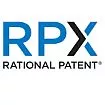- within Intellectual Property topic(s)
- with readers working within the Banking & Credit and Law Firm industries
Upfront in Headwater Research LLC's new Western District of Texas complaint against Alphabet (Google) (7:25-cv-00231), the plaintiff cites testimony from its recent trial against Samsung that the answer to the question "Q. Now, how many devices use [Firebase Cloud Messaging (FCM)] today?" is "A. Billions of devices." An Eastern District of Texas jury returned a $278.8M verdict for Headwater in that case, and Headwater now pleads that a "core aspect of the accused systems" in the suit against Google is FCM, which Headwater characterizes as "Google's principal mechanism for binding the Android ecosystem as a whole—including Android device OEMs, carriers, app developers, and users—to Google's advertising platform" and from which Headwater asserts that Google derives "immense value", as underscored by its Revenue-Share Agreement ("RSA") and Mobile Application Distribution Agreement ("MADA") with Samsung. Headwater points to "public testimony in the Department of Justice's 2025 antitrust case" that allegedly "revealed that Google paid Samsung about $8 billion between 2020 and 2023—roughly $2 billion per year—to ensure Samsung devices, including Galaxy phones and tablets, ship with Google Play Services (and, by extension, the embedded FCM client stack) pre-installed and set as the system-level default".
Per Headwater, "Through these agreements, Google guarantees (i) FCM starts generating revenue for Google out-of-the-box on the world's best-selling Android hardware and continues to monetize subsequent push interactions and push-driven engagement, and (ii) Google, not competing push providers, controls the only OS-level push channel on those devices, which Google uses to route push messages, collect user data, and monetize engagement—including from ad impressions, in-app purchases, and by feeding the user data it collects into its ad‑targeting algorithms, and charging app developers for high‑priority delivery". The plaintiff further pleads:
On every Android handset and tablet that ships with Google Play Services, Google configures a persistent connection—called the "MCS" (Mobile Connection Server) channel— between the device and Google's FCM server. Because it is a centralized channel through which Google delivers push messages for all applications utilizing FCM, the MCS channel enables Google to siphon device- and app-level telemetry, and engage in continuous monitoring of user behavior across the device. For example, Google can identify which applications are installed on the device, monitor which ones are actively used, and track the frequency and timing of their usage. Even where apps do not share data directly with one another, Google can correlate behavioral patterns across apps by analyzing metadata such as wakeup events, push delivery timestamps, and message receipt activity. Thus, unlike traditional tracking mechanisms—such as cookies or app-specific SDKs—FCM enables a deeper and more comprehensive level of behavioral monitoring that users cannot meaningfully detect, restrict, or opt out of.
With this setup, Headwater Research accuses Google of infringing three patents (9,198,117; 9,615,192; 10,321,320) from the single large family that it has been asserting in this campaign, first against Samsung and then Verizon (Verizon Wireless), Deutsche Telekom (Sprint, T-Mobile), Lenovo (Motorola Mobility), and AT&T (AT&T Mobility) (in that rough order). The plaintiff has hit the wireless carrier defendants, as it has Samsung, through multiple complaints. For RPX's latest coverage, see "Headwater Research Sues the Major Wireless Carriers for a Third Time This Year" (May 2025), with full treatment of the $278.8M verdict against Samsung provided at "Jury Returns Verdict for Headwater Research in Second Samsung Trial" (April 2025).
There remain three additional cases in this campaign's pipeline against Samsung alone. In the most recently closed Samsung case, a jury returned its verdict on April 25, 2025, finding that Samsung has infringed claims 1, 7, and 19 of the 8,406,733 patent and claims 1, 12, and 16 of the 9,198,117 patent. The '192 patent was originally in suit there, but it was not tried to the jury, the plaintiff omitting it from its final election of asserted claims. Headwater pleads that Google has had knowledge of the '192 patent, as well as FCM's alleged infringement, since its July 2023 amended complaint in the Samsung case, the plaintiff contending that that complaint laid out its FCM-based infringement theory and that "Samsung shared the FAC and claim chart with Google in the July 2023 timeframe". Headwater then points to the service of its related infringement contentions and expert infringement report, pleading similar notice allegations concerning the '320 patent, which shares a common parent with the '117 patent.
Russ August & Kabat (RAK) represents Headwater Research. The case against Google has yet to be assigned to a judge. District Judge Rodney Gilstrap presides over the Eastern District of Texas suits, which include all defendants but Lenovo and Motorola Mobility, which Headwater sued in the Northern District of California. There, Headwater disclosed only it and RAK as financially interested nonparties. Lenovo has filed a motion to dismiss under Alice, challenging the two asserted patents as ineligibly drawn to the abstract ideas of "screening requests" and "scheduling activities", respectively. The case entered claim construction before the parties stipulated to a stay to await the outcome of certain inter partes review proceedings triggered by petitions that Lenovo filed. The PTAB denied institution in response to one but, in early March 2025, instituted trial as to the other.
Jury selection is set for June 23, 2025 in the cases against the Deutsche Telekom defendants and Verizon; it is set for July 7, 2025 against AT&T. The next most advanced Samsung case is set for trial this October. 5/16, Western District of Texas.
The content of this article is intended to provide a general guide to the subject matter. Specialist advice should be sought about your specific circumstances.


